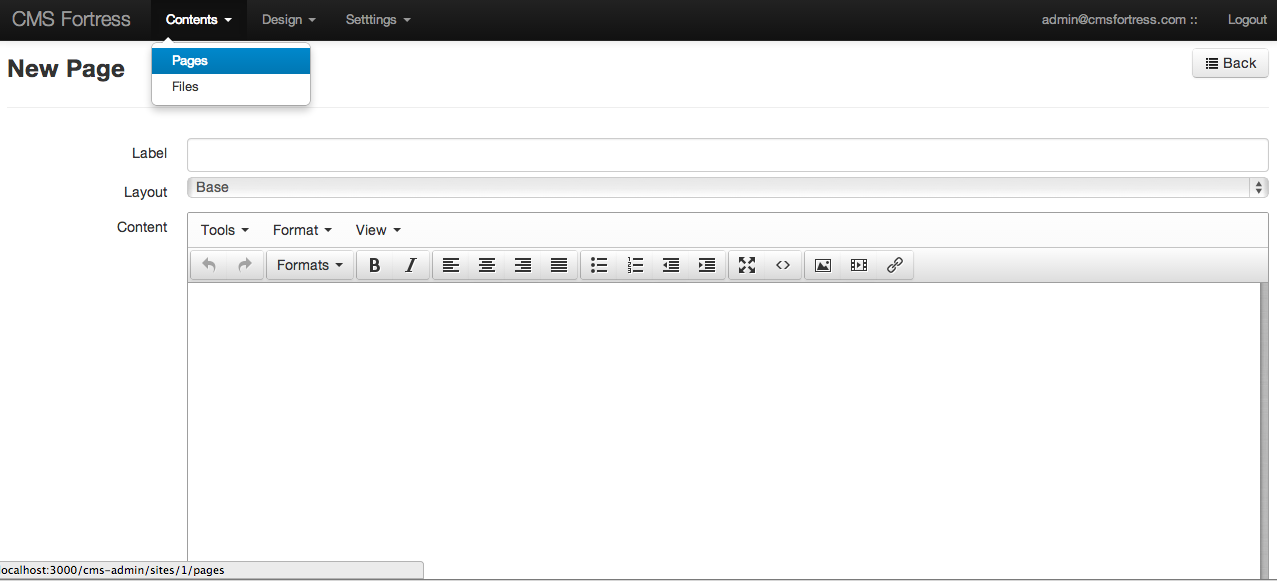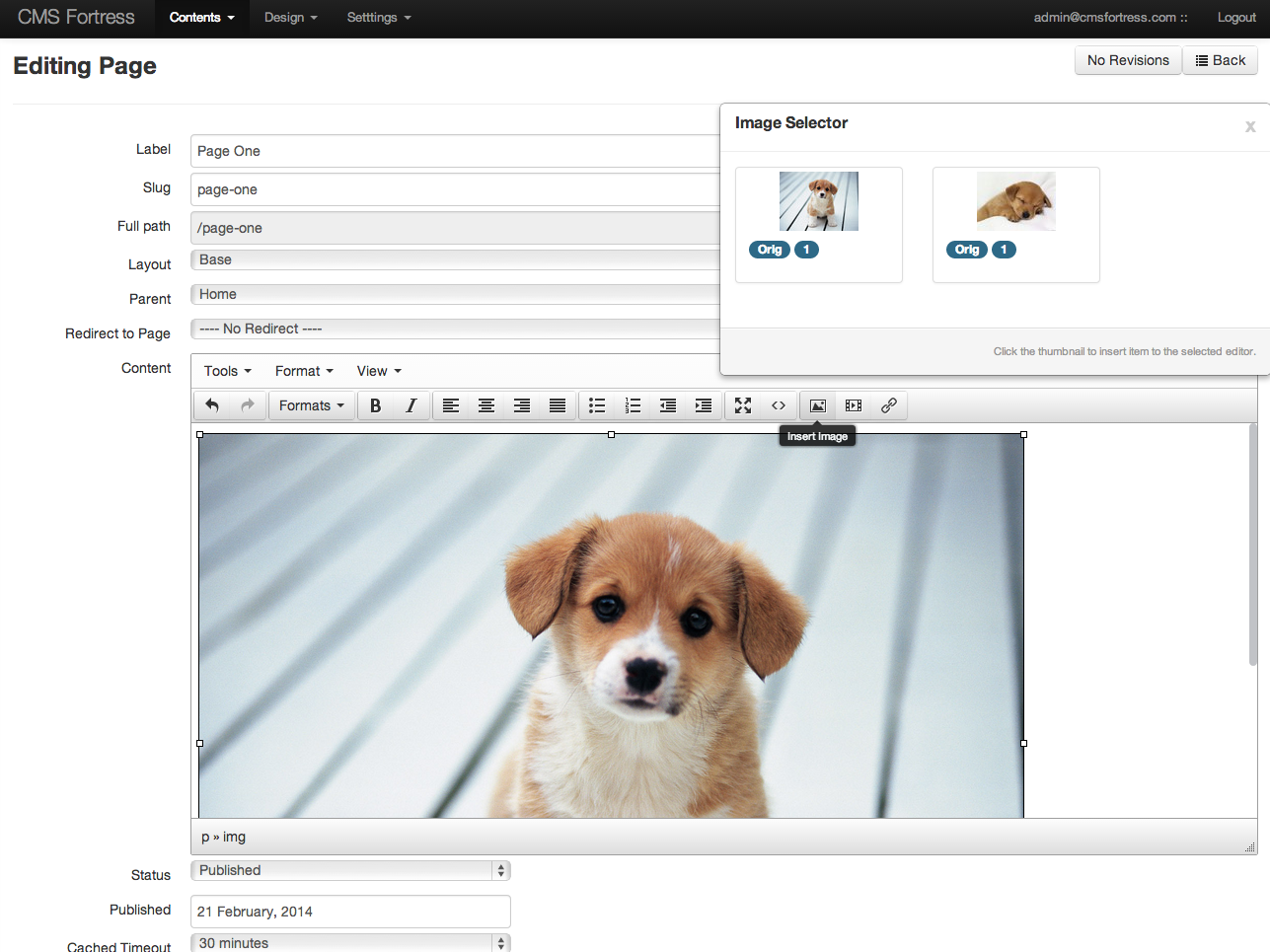<img src=“https://badge.fury.io/rb/cms-fortress.png” alt=“Gem Version” /> <img src=“https://gemnasium.com/melvinsembrano/cms-fortress.png” alt=“Dependencies” /> <img src=“https://codeclimate.com/github/melvinsembrano/cms-fortress.png” alt=“Code Climate” /> <img src=“https://travis-ci.org/melvinsembrano/cms-fortress.svg?branch=master” alt=“Build Status” />
An extension for the awesome ComfortableMexicanSofa (github.com/comfy/comfortable-mexican-sofa) CMS Engine
-
Added Role Management for proper workflow
-
Added Devise for User and Session Management
-
Added User Management
-
Added Page caching control
-
Added proper page workflow
-
Customizable menus, role abilities
-
Added layout theming, current themes (:default, :wide)
-
Integrate Cms::Files (image,video and link) attachements into WYSIWYG editor buttons (wide theme only)
Add gem defintion to your Gemfile:
gem 'cms-fortress', '~> 1.3.6'
Then from the Rails project’s root run:
bundle install rails generate cms:fortress rake db:migrate
After that run your app and navigate to localhost:3000/cms-admin to start creating your pages, and also don’t forget to delete your public/index.html file.
login using the following info below: username: [email protected] password: 1234qwer
rails generate cms:fortress --no-comfy rake db:migrate
rails generate cms:fortress:upgrade rake db:migrate
You can create a custom role ability via a three-step process.
1: Edit config/roles.yml and add the new role under the category you wish.
contents: - pages - files - page.review - page.publish designs: - layouts - snippets settings: - sites - roles - users - *my_role_detail*
2: Configure cms-fortress to add a new resource. Add this in an initializer:
Cms::Fortress.configure do |config| config.settings_resources << { :name => 'my_role_detail', :title => 'i18n.label.title', # this is passed to the t() function - can be plain text :path => 'admin_my_role_details_path' } # the other two lists are "content_resources" and "design_resources" #adding a super user only menu item config.settings_resources << { :name => 'my_role_detail', :title => 'i18n.label.title', # this is passed to the t() function - can be plain text :path => 'admin_my_role_details_path', :super_user => true } # adding a divider menu item (Wide Theme only) config.content_resources << {name: 'divider'} #adding a menu header item (Wide Theme only) config.content_resources << {name: 'dropdown-header', title: "i18n.my.header.label"} end
The path is eval’d at runtime, so you can use Rails helper methods such as current_user or @site in it. If the result is nil, the link will not show up in the left nav bar.
3: Restart the server. Go into each Role you have defined and click “Load New Roles”. Voila!
You can turn off page workflow or page caching via configuration and you can set the theme to :wide or :default:
Cms::Fortress.configure do |config| config.theme = :wide config.enable_page_workflow = false config.enable_page_caching = false end
With wide theme, the layout and menus are being compacted so that you have all the area for authoring. Files are also being nicely integrated to the WYSIWYG editor (tinymce). Below are the fetures for wide theme:
-
Compact Layout and Menus
-
Responsive Layout
-
Fullcreen Editing
-
Integrated image file attachment
-
Integrated video file attachment
-
Integrated link file attachment
For more Comfortable Mexican Sofa awesomeness visit the wiki page here github.com/comfy/comfortable-mexican-sofa/wiki
To run the tests you have to install the development files and run the migrations
rails generate cms:fortress --development rake db:migrate
Afterwards you can run the tests by calling
rake test
Please see CONTRIBUTING.rdoc for details.
Copyright © 2014 Melvin Sembrano. See LICENSE.txt for further details.

